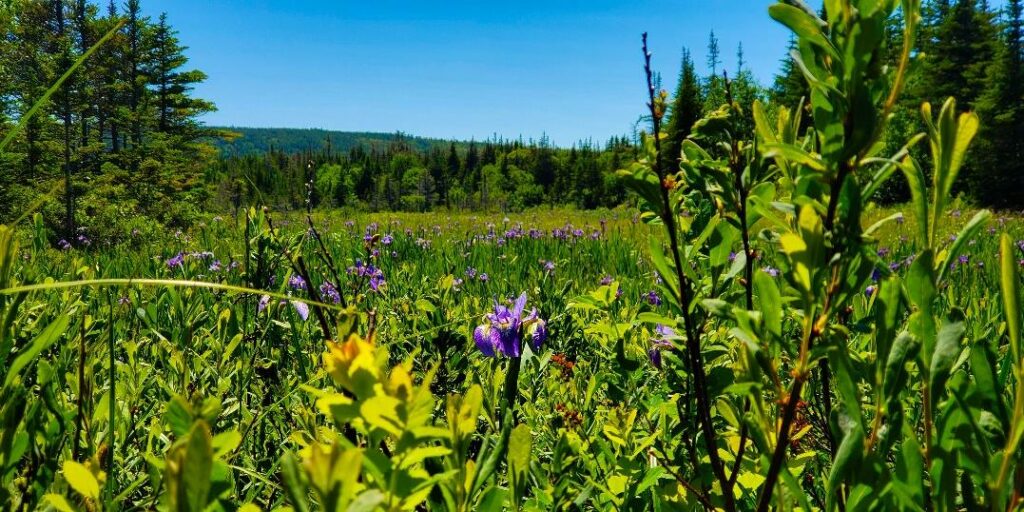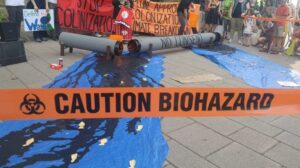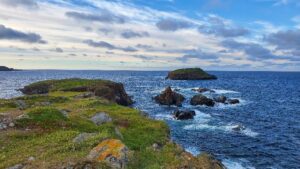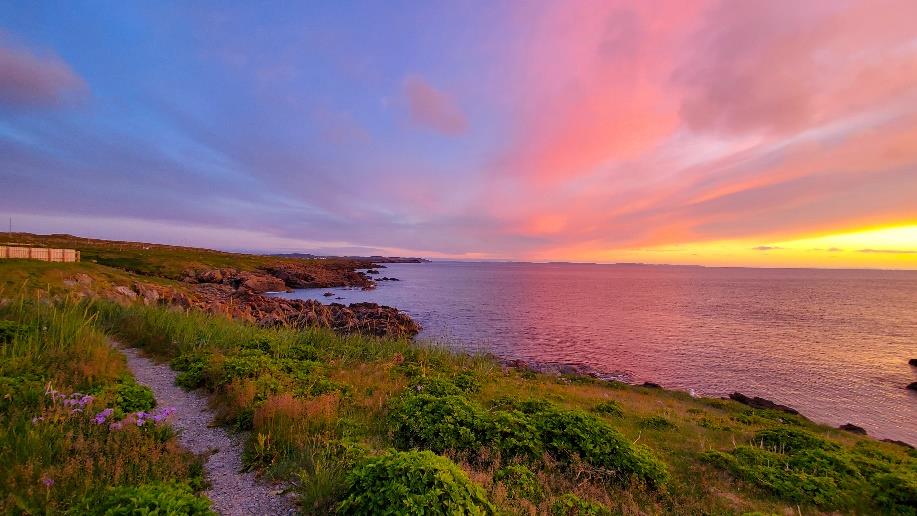Kwe’ teluisi Avery, n’in l’nuwey weji-sqala’tmik Mi’kma’ki K’taqamkuk, kepmitelsi puoin My name is Avery (they/them/negm), I am Mi’kmaw grown from the land now called Newfoundland, and I am proud to be a queer trans L’nu.
It’s odd to think about now, but about four years ago I was talking with my friend about driving to a nearby city to attend an anti-racism protest and when we couldn’t make it that weekend she suggested attending the one being hosted a few weeks later for Earth Day. I dismissed the idea out of hand because sure, I was interested in environmental protection, but my activism and energy were focused on anti-racism and Indigenous rights so I didn’t see the Earth Day event as worth the time and energy it would take to travel to the city. I remember saying something like “climate is important, it’s just not a priority to me when so many other things are weighing down on my communities.”
I fought for environmental rights and protection in the context of fighting extractivism and pipeline construction as infringements on Indigenous territories, but climate and conservation seemed so abstract and far away while racism and police violence and colonialism and land theft were immediate and tangible and impossible to ignore. I didn’t think I could be an L’nu, an anti-colonial activist, and an environmental activist. To be frank, environmental activism seemed monopolized by a homogenous group of privileged white vegans shouting for social capital and wanting to protect their pretty parks and leisure spots and condemn Indigenous hunters for harvesting ‘cute’ animals without ever actually having to reconcile genuine doubts about their own personal survival, let alone having to reckon with their place in ongoing colonial violence and land dispossession. And that just wasn’t something I could identify or associate myself with.
About a year later though, I met a group of Anishnaabeg and Mi’kmaw water protectors and they opened a door to another side of environmental activism – one based in intersectionality and justice and relationships with the land and each other and I realized that I could be a climate activist not in spite of who I am but because of who I am. Climate change and environmental degradation disproportionately affect BIPOC communities** and our fights for rights, recognition, and justice will only get harder as the world warms and the ice melts and the habitats shrink and flood and shrivel. It can be so hard to expend energy on long-term struggles when our communities’ short-term survival seems so uncertain, but our fights don’t have to be separate. We can fight police violence and the pollution of our communities. We can fight orchestrated generational poverty and extractivism. We can fight for our right to live and for a healthy world to live in. Because these fights aren’t siloed, they are interconnected and interdependent.
Meeting those Indigenous water protectors bridged the gap between my anti-colonial and anti-racist activism and environmental activism and that is a gap that needs to be bridged a whole lot more often. Because even though a lot of climate activist spaces remain dominated by extremely privileged white settlers, and even though many of them still have not had to reckon with their complicity and even culpability when it comes to racism, colonialism, land theft, and ongoing occupation, I have come to realize that their pervasiveness in the environmental movement does not mean they own the movement. The lands and waters and skies cannot be owned. Those who dwell on the land and swim in the waters and fly through the skies cannot be owned. Msit ko’kmanaq, all our relations, cannot be owned. And neither can the movement to protect them.
I can’t speak for all the beautifully diverse communities and Nations within the category of BIPOC, but being Mi’kmaw means weji-sqalia’tiek, that we were grown from this land we live with. The rivers flow in our veins and the winds whisper the ways of the world in our ears because Wsitqamu’k, the Earth, isn’t a place – negm is our family and protecting our family is an integral value in Mi’kmaw culture. So environmental activism for me is about more than just conservation or mitigating climate change, it is about climate justice and protecting msit ko’kmanaq. It is about cherishing spaces where we can live and learn and love in relationship and reciprocity with Wsitqamu’k. It is about holding corporations and governments and social elites accountable for the harms they continue to inflict on our communities. It is about recognizing the interconnectedness of racism and colonialism and extractivism and capitalism and realizing that securing a future where our communities can be healthy and safe requires securing a future where Wsitqamu’k is healthy and safe. And that is a movement I can identify and associate with.










